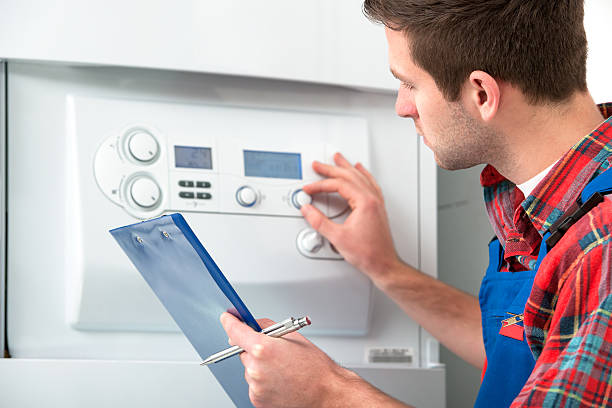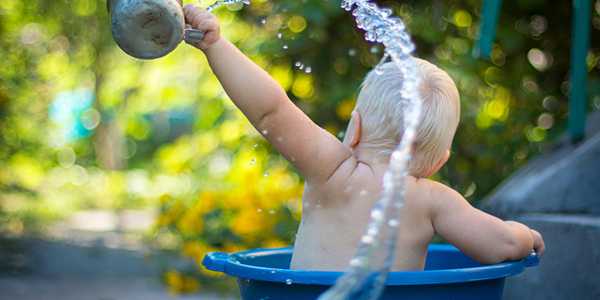What To Do If Your Flight is Cancelled or Delayed? Manage Things Wisely
Top 5 World’s Most Liveable Cities For 2024
13 Minimalist Living Room Design Ideas for Modern Homes
Top Rated Best Air Fryers of 2024: Expert Reviews
Revealing the Mysteries: Spirituality Vs Religion Which Path is Yours?
6 Strategies to Balance your Work and Home with Ease
Maintaining an Efficient Plumbing System in Your Home: A Comprehensive Guide
Maintaining an efficient plumbing system in your home is not only essential for the comfort of modern living, but also for the longevity of your property's infrastructure. An efficient plumbing system reduces the risk of leaks, reduces the likelihood of unexpected expensive repairs, and conserves water, saving homeowners a ton of money over time. This comprehensive guide covers everything from routine maintenance checks to tips for ensuring your system is efficient.
Maintaining an efficient plumbing system in your home is not only essential for the comfort of modern living, but also for the longevity of your property's infrastructure. An efficient plumbing system reduces the risk of leaks, reduces the likelihood of unexpected expensive repairs, and conserves water, saving homeowners a ton of money over time. This comprehensive guide covers everything from routine maintenance checks to tips for ensuring your system is efficient.

Understanding Your Home’s Plumbing System
Before diving into maintenance tips, it's important to have a basic understanding of your home's plumbing system. Most residential plumbing systems are made up of two main systems: the water system, which brings fresh water into the home, and the sewer system, which removes wastewater. The water system delivers water under high pressure to upstairs, in the shower, or wherever it needs to go, while the sewer system relies on gravity to move wastewater into the sewer system or septic tank.
Regular Maintenance Checks
Regular maintenance is key to keeping your plumbing system running efficiently. It's recommended that homeowners thoroughly inspect their plumbing systems at least once a year. This includes checking toilets, faucets, and pipes for leaks, inspecting the condition of hot water tanks, making sure sump pumps and drains are working properly, and inspecting visible pipes for signs of water damage or corrosion.
According to the U.S. Environmental Protection Agency (EPA), household leaks across the country waste approximately 900 billion gallons of water each year. Fixing leaks regularly can help conserve water and significantly reduce water bills. In fact, homeowners can save about 10% on their water bills by fixing easily repairable household leaks.
Preventing Blockages and Clogs
A common problem that affects the efficiency of a home's plumbing system is drain blockages. These can be caused by a variety of substances, such as hair, grease, food particles, and non-washable items. It is easier to prevent pipe blockages than to remove them after they occur. Homeowners should use drain filters to collect hair in the shower and food particles in the kitchen sink. Avoid pouring grease down the drain because it solidifies and causes blockages.
Studies and surveys have shown that more than 47% of sewage system blockages are caused by grease and grease deposits, which are often poured down the drain by residents. Educating everyone in the home about what should not be flushed or cleaned can greatly reduce the risk of clogs.
Water Pressure Management
Ideal water pressure is essential to the operation of a home's plumbing system. Water pressure that is too high can lead to pipe damage, leaks, and costly repairs. Homeowners can check water pressure with a pressure gauge screwed onto a garden faucet. The general recommendation is that residential water pressure should not exceed 60 pounds per square inch (psi).
If you find that your water pressure is too high, installing a pressure regulator can protect your pipes and reduce the stress on your plumbing system. This small investment will not only extend the life of your pipes, but it can also help appliances like washing machines and dishwashers run more efficiently.
Separating and Treating Hard Water
Hard water contains high levels of minerals, such as calcium and magnesium, which over time can cause scale deposits to form in pipes, water heaters, and boilers. These scale deposits can significantly reduce the efficiency of these appliances. According to the Water Quality Association, more than 85% of the United States has hard water. Softening your water with a water softening system can prevent the formation of these mineral deposits and maintain the efficiency and life of your plumbing system.
Water softeners replace calcium and magnesium ions with sodium or potassium ions, making water softer and more compatible with soap, extending the life of your pipes and increasing the efficiency of your water heater.
Invest in a Modern Plumbing System
Taking proactive steps to upgrade older appliances to more modern, more efficient versions can significantly improve the efficiency of your home's plumbing system. For example, replacing an old toilet with a new, low-water-consumption model can save 7.6 liters of water per flush, which equates to nearly 49,000 liters of water per year for an average home. Low-water faucet aerators and showerheads can also significantly reduce water usage without reducing water pressure.
Technological advances such as tankless water heaters and leak detection systems can further improve plumbing efficiency. Tankless water heaters provide hot water on demand, so no storage tank is needed to keep the water warm at all times. Energy savings can be as much as 34% compared to traditional home water heaters that use 41 gallons or less of hot water per day.
Conclusion
Maintaining an efficient plumbing system in your home not only supports the functionality and sustainability of your home, but it also helps to significantly save costs and resources. By understanding and carefully maintaining your plumbing infrastructure, performing regular inspections, clearing clogs and water pressure, and investing in improvements, homeowners can ensure their plumbing systems remain robust and efficient for years to come.











